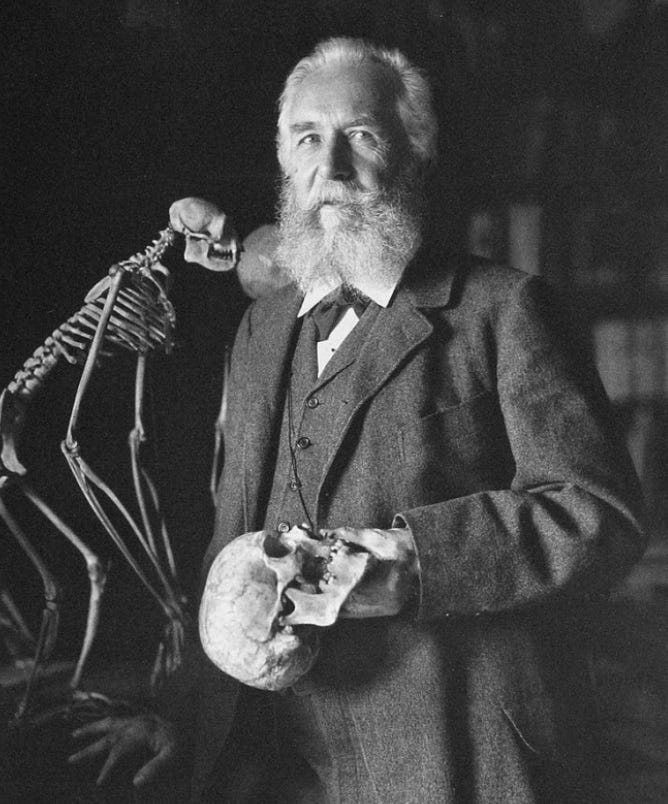"Politics is applied biology."
Ernst Haeckel
This quote from Ernst Haeckel, born August 9, 1834, a German biologist, naturalist, and philosopher, reflects his perspective on the relationship between biological principles and political structures. Haeckel was a prominent figure in the late 19th and early 20th centuries, known for his contributions to evolutionary theory, his advocacy of Darwinism, and his development of the concept of ecology. However, some of his ideas, including the one encapsulated in this quote, have been widely debated and criticized.
Haeckel's statement, "Politics is applied biology," suggests that political systems and societal structures are fundamentally rooted in biological principles. In other words, he believed that the laws governing human societies could be understood through the lens of biology, particularly evolutionary biology. This perspective aligns with the broader concept of Social Darwinism, which posits that the principles of natural selection and survival of the fittest also apply to human societies, influencing their development, hierarchy, and organization.
From this viewpoint, politics is seen as an extension of biological processes, where human behaviors, including competition, cooperation, and hierarchy, are shaped by our biological nature. Haeckel's idea implies that the political decisions and systems we create are reflections of underlying biological imperatives, such as the drive for survival, reproduction, and dominance.
However, this quote and the ideas it represents have been controversial for several reasons. Social Darwinism, which emerged in part from such interpretations of biology, was used to justify a range of social policies and ideologies, including imperialism, racism, and eugenics. The notion that biological determinism should guide political decisions can lead to the dehumanization of individuals and groups, as it reduces complex social and ethical issues to mere biological processes.
Critics argue that while biology undoubtedly influences human behavior, politics also involves ethics, culture, and values that transcend biological determinism. Human societies are shaped not only by our biology but also by our capacity for reasoning, empathy, and moral decision-making. Reducing politics to biology risks oversimplifying these complexities and ignoring the role of human agency in shaping just and equitable societies.
In summary, while Haeckel's quote highlights the interplay between biology and politics, it also serves as a cautionary reminder of the dangers of applying biological determinism to social and political issues. The complexities of human societies require a broader perspective that incorporates not only our biological nature but also our ethical and cultural dimensions.




